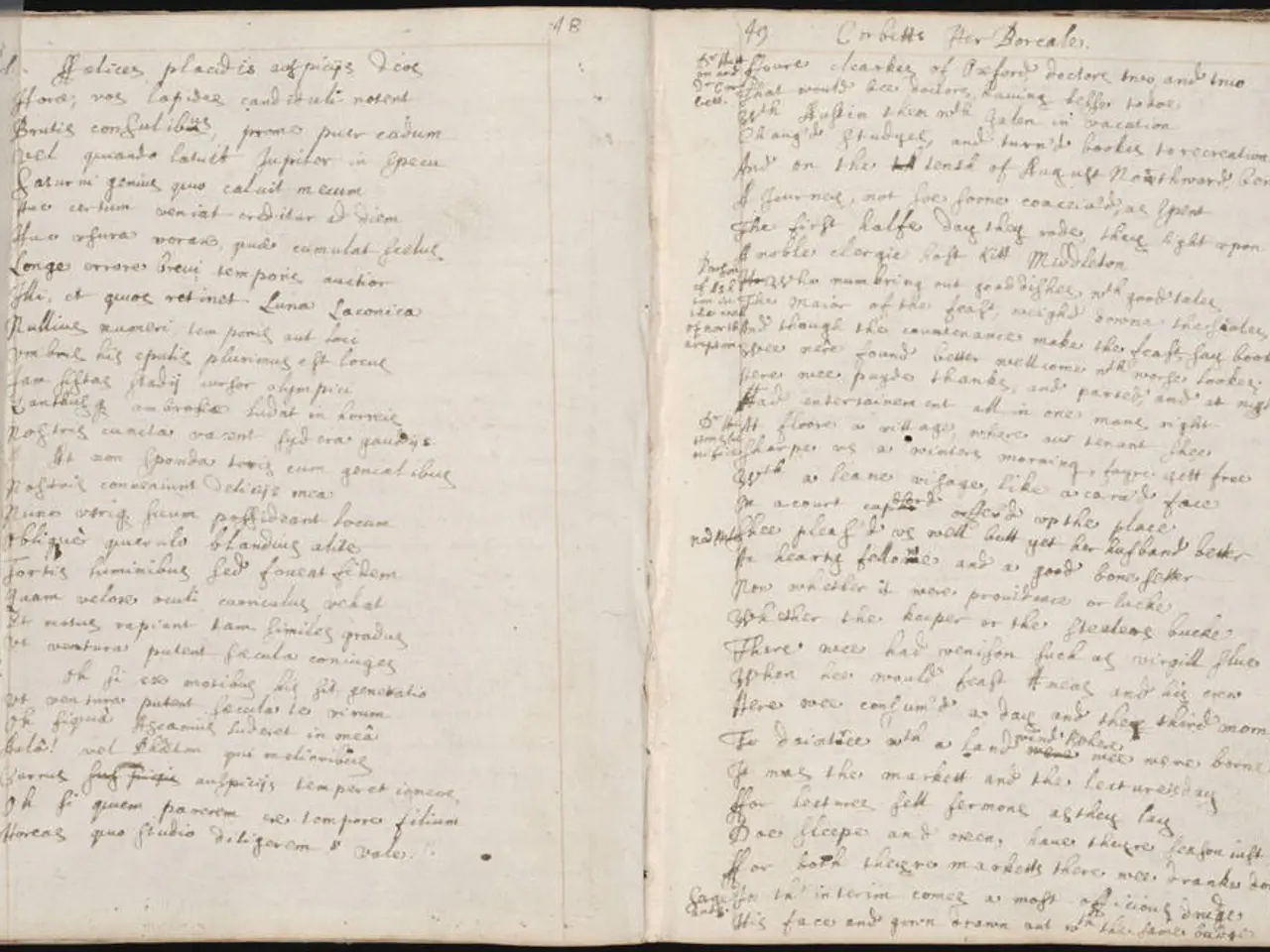Anonymous law graduate revealed as perpetrator of academic dishonesty in court, as per Chief Justice's statement.
In a landmark ruling, the Singapore High Court has denied admission to law graduate Pulara Devminie Somachandra, who failed to disclose past plagiarism incidents. This decision, made by Chief Justice Sundaresh Menon, underscores the importance of integrity and full disclosure in admission proceedings.
Ms Somachandra, a graduate from a university in the United Kingdom, applied to be admitted to the Singapore Bar in 2025. However, her application was met with objections from the Attorney-General, Singapore Institute of Legal Education (SILE), and the Law Society, who argued that she should be excluded for a minimum of five years.
The objections stemmed from two incidents. In 2020, during the Part A Bar examinations, Ms Somachandra was found to have plagiarised answers, with some of her scripts matching those of another candidate, Ms Tan. Previously, during her university days, she had also been found guilty of "moderate plagiarism."
The Chief Justice, in his grounds of decision, emphasised the significance of a legal practitioner's character, stating that it is "even more important" given the ethical standards to which legal practitioners are held. He reaffirmed that applicants must put their character "up for public scrutiny" and be assessed as suitable persons.
In the original grounds of decision, the Chief Justice chose to temporarily withhold Ms Somachandra's identity due to concerns about her mental health. However, after further consideration, he decided to republish his grounds of decision and identify Ms Somachandra.
Despite concerns about her mental health, the court did not find sufficient evidence to suggest that lifting the anonymisation of the case would likely cause grave and disproportionate harm to her. The court should not have to police whether Ms Somachandra has made progress in her recovery over the next five years or so, and there must be personal responsibility and willingness on her part to take steps towards her rehabilitation.
The Law Society proposed that Ms Somachandra undergo a period of consistent psychological and psychiatric treatment at the Institute of Mental Health (IMH) and create a risk management plan. The court did not make this a condition of her exclusion, but it is expected that she will take these steps towards her rehabilitation.
This ruling reaffirms the principle of open justice in Singapore, whereby the public interest in maintaining ethical standards in the legal profession outweighs privacy concerns of individual applicants. Admission to the Bar in Singapore requires candidates to demonstrate good character and suitability, with a strict principle of openness and public scrutiny. They must disclose any issues bearing on their character, including past misconduct such as plagiarism, as full disclosure is expected, and failure to do so may impact their admission negatively.
In summary, candidates seeking admission to the Singapore Bar must fully disclose past plagiarism incidents, as part of the rigorous character assessment conducted openly to preserve the integrity and trustworthiness of the legal profession. The default rule that the identities of lawyers must be made public is of "great importance" for questions of public interest regarding the character of the lawyer are required for admission to the Bar.
- Ms Somachandra's case serves as a reminder for all aspiring legal practitioners about the importance of education-and-self-development, especially in maintaining integrity and disclosing past misconduct like plagiarism during the admission process.
- The rigorous character assessment conducted openly for admission to the Singapore Bar emphasizes the need for applicants to disclose any past plagiarism incidents, demonstrating their commitment to upholding the ethical standards, transparency, and trustworthiness expected of legal professionals.




